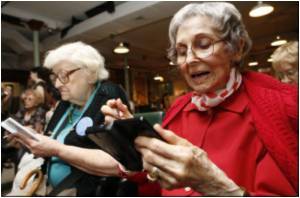Computerized physical therapy games can help people with Parkinson's disease, shows study led by the UCSF School of Nursing and Red Hill Studios, a California serious games developer.

UCSF and Red Hill were the first research team in the United States to receive federal funding in the burgeoning field of low-cost computerized physical therapy games. Unlike off-the-shelf computer games, these specialized games encourage scientifically tested specific physical movements to help people with functional impairments and diseases.
Teams at Red Hill and UCSF collaborated to produce nine "clinically inspired'' games that were designed to improve coordination in people with Parkinson's disease, a chronic, progressive neuromuscular disease characterized by shaking, slowness of movement, limb and trunk rigidity. The clinical team members at UCSF focused on specific body movements and gestures that their previous research had shown to be beneficial for staving off the physical declines of Parkinson's.
The UCSF team was led by Glenna Dowling, RN, PhD, professor and chair of the UCSF Department of Physiological Nursing, and Marsha Melnick, PT, PhD, a clinical professor in the UCSF School of Medicine's Department of Physical Therapy and Rehabilitation Science and professor emerita of the Department of Physical Therapy at San Francisco State University.
The Red Hill team then designed physical games, similar to Wii and Kinect games, in which subjects win points by moving their bodies in certain ways. Each game has multiple difficulty levels so that the clinical team could customize the therapeutic games for each subject's particular abilities.
"Each subject found his or her own gaming 'sweet spot' – the spot where the physical challenge was not too hard, not too easy, just right,'' said Bob Hone, creative director of Red Hill Studios and the lead principal investigator of the study. "And when subjects mastered one game level, they often moved on to harder levels for more beneficial effect. The subjects improved their games scores while improving their gait and balance.''
Advertisement
"From the data tracking we could see that there were some subjects who were playing the games more than the specified three times a week,'' Hone said. "Because this was a highly structured research study, we actually had to ask them to play less than they wanted.''
"These initial studies show the promise of custom-designed physical therapy games promoting specific movements and gestures that can help patients get better,'' Dowling said. "Now that we have this preliminary positive result, we want to conduct a longer term clinical trial with more subjects to confirm these initial findings.''
Source-Eurekalert










